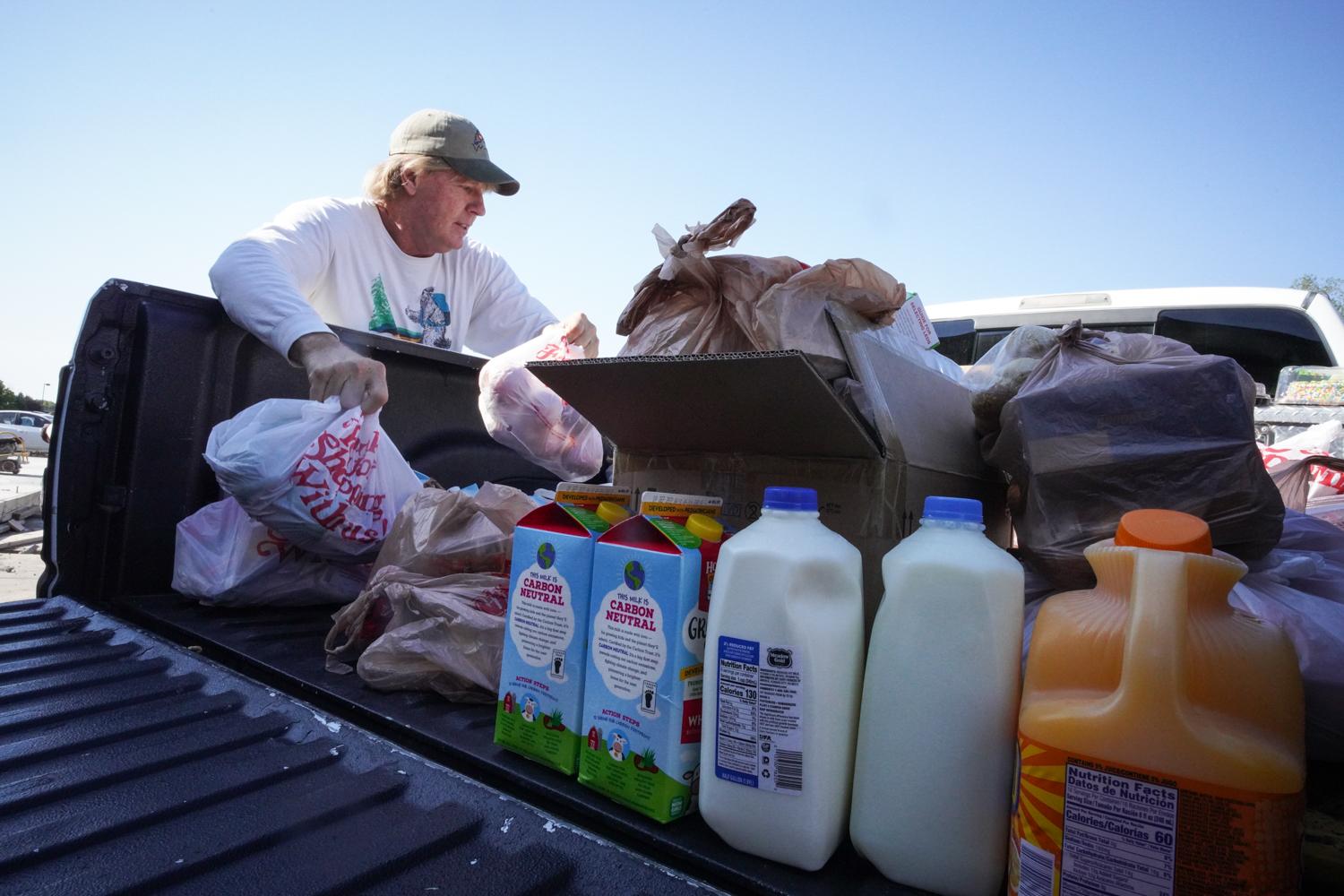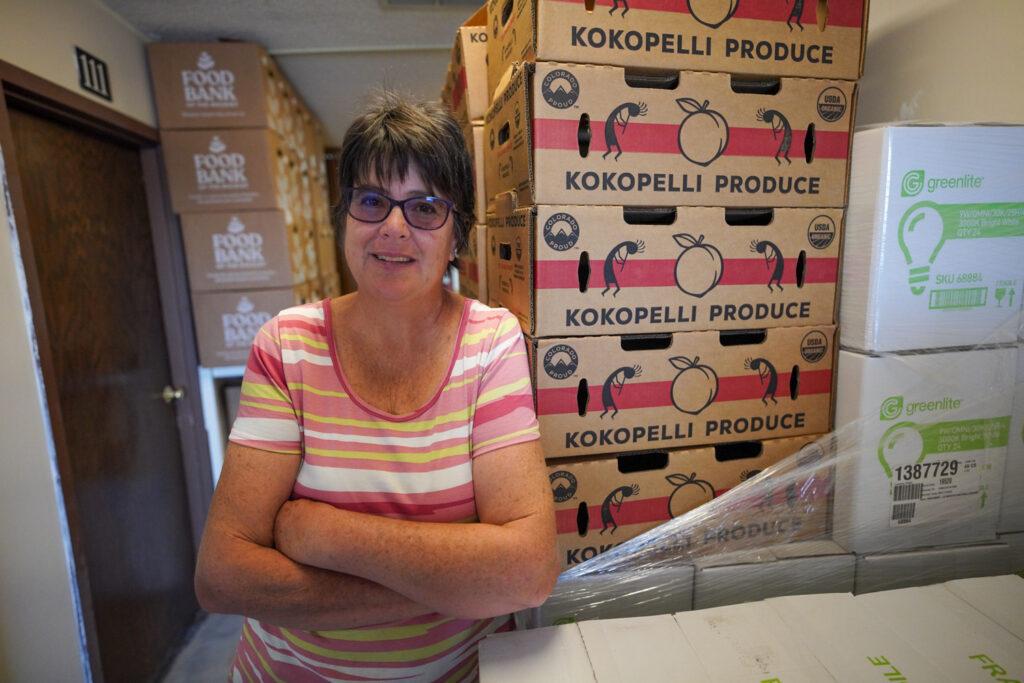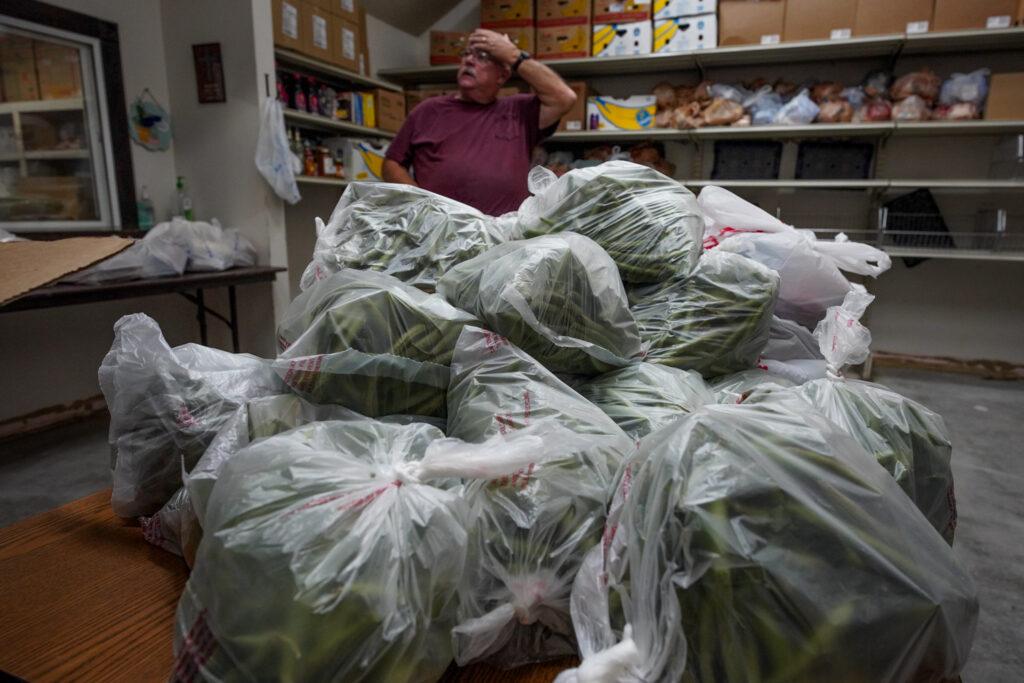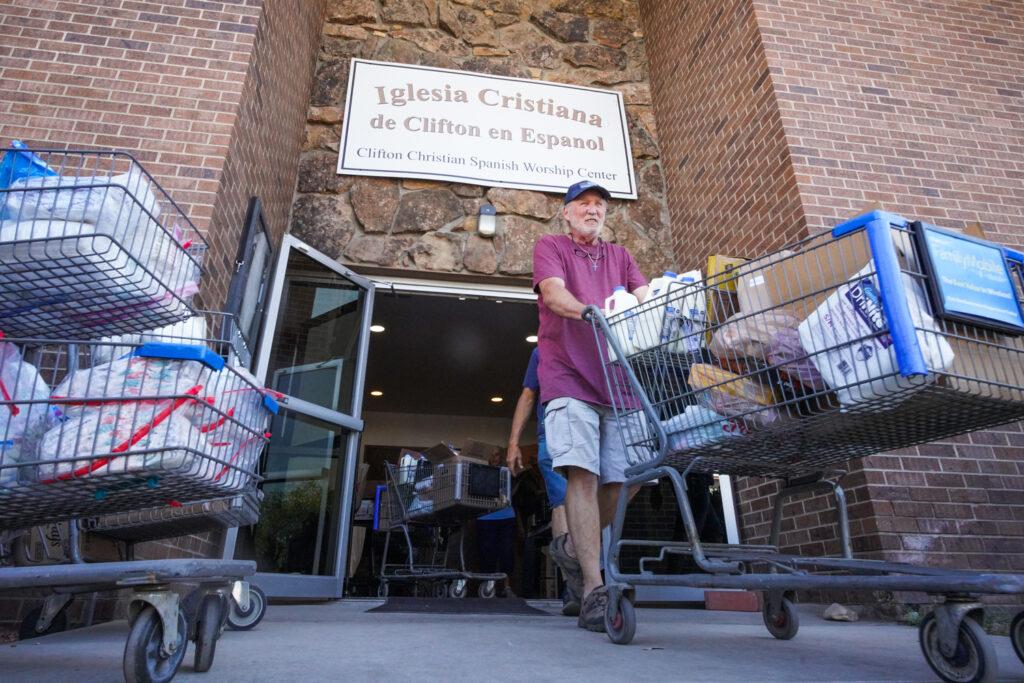
Joanne Feaster knows what it’s like to be poor. She grew up in the small town of Clifton, Colorado outside of Grand Junction. She says there was a lot of love in her family but not a lot of money. They grew their own food to cut down on grocery bills and keep fresh produce on the table.
It’s probably why Feaster’s determined to have a supply of fresh fruits and vegetables at the Clifton Christian Church Food Bank, which she’s run for more than a decade. But inflation has challenged Feaster to think outside the box – and do some hustling – to fill her shelves. That could mean paying a visit to one of the many orchards and farms in the Grand Valley.
“I can always go there and say, ‘I don’t have any fruit today. What can you give me?’ And they’ll say, ‘pull around back’ and [they] load me up,” Feaster said.
The food bank also provides staples like milk and eggs and household goods like toilet paper, which, along with fresh produce, have also gone up in price. Feaster said she also relies on “grocery rescue programs,” where local grocery stores donate surplus food but she said she refuses to sacrifice on quality.
“I am very particular — very particular — about what we give our clients,” Feaster said. “We have a rule: If you will not eat it and serve it to your family, you will not give it to my families.”

So far, Feaster is feeding even more clients this year than last. In the first six months of this year, she’s provided food for 1,000 more families than she did in the first half of 2021.
Food banks across the state are feeling the pinch.
“We are currently spending more than triple the amount monthly to purchase food than we were in 2019,” said Aditi Desai of Food Bank of the Rockies.
Desai ticked through a list of items that have gone up in price: potatoes up 71 percent, onions up 50 percent and cucumbers up 39 percent.
“Those are just a few examples of how large an impact inflation and supply-chain disruptions are currently having on the ability of food banks to obtain nourishing food at affordable prices,” Desai said.
At the Clifton food bank, Jackie Feaster describes most of her clients as the working poor: people with low-wage jobs in a world where the cost of living is rising rapidly. She said many of her clients scrimp on food to pay for fixed costs.
“They cannot short their rent bill, but they can short their grocery bill. And so they come here so I can fill the gap.”

Along with poverty, Feaster said the people she serves face the gamut of mental health problems and addictions. During the pandemic, when many of her clients couldn’t work due to closures, Feaster and her volunteers kept the food bank open by converting it into a drive-through model.
This fall, Feaster said people will once again be able to come inside and choose their own food from the pantry.
“It is very empowering for a mom to be able to come in and choose what kind of green beans she has to give to her children. Her children may like cut green beans instead of French cut,” Feaster says. “It [could] mean nothing to you and I, but it would mean everything to her.”
Feaster held cooking classes before the pandemic and hopes to restart those too. She said she learned early on that many clients didn’t know how to prepare meals.
“My first Thanksgiving I gave people a frozen Turkey and some of them did not know what to do with a frozen turkey.”
She said she teaches people things like how to prepare chicken and use the parts to make multiple meals.

Feaster said with so many people struggling, providing people with fresh food is a priority. Another priority, which she imparts to her volunteers, is to treat people with the dignity and respect they deserve.
“Even when you pack my bags to make food for people, I do not want you throwing my cans and disrespecting my can of corn because I feel that's disrespecting my clients,” Feaster said.
As food banks like this one face rising food costs, Feaster said she spends a lot more time writing applications for grants and appeals to the community for donations.
Feaster said she relies on God, who she said always seems to provide what she needs in the nick of time.
Feaster knows she can’t lift everyone out of poverty but she believes she can make a difference. One recent day, she said, when the food pantry was closed, a woman experiencing homelessness came to the door.
“She was able to get her some food and some crackers and a yogurt drink. I talked to her and off she went. It lightened her for the day, Feaster said. “Was that world-changing? We never know what those small things will be to someone.”









